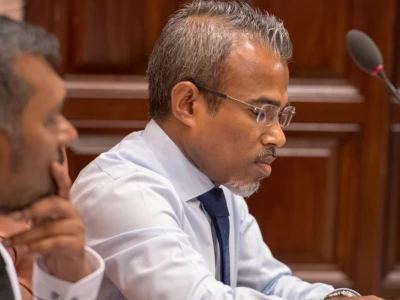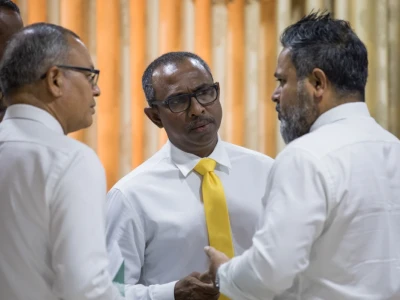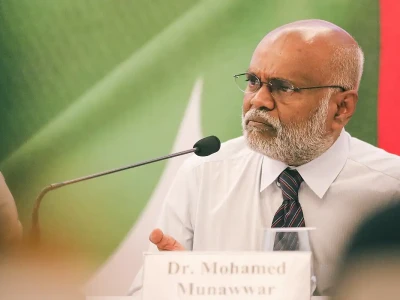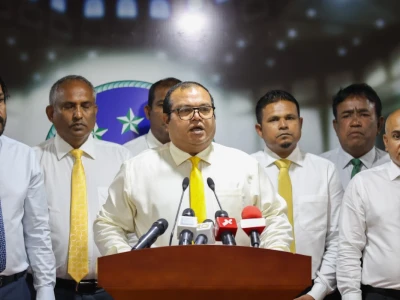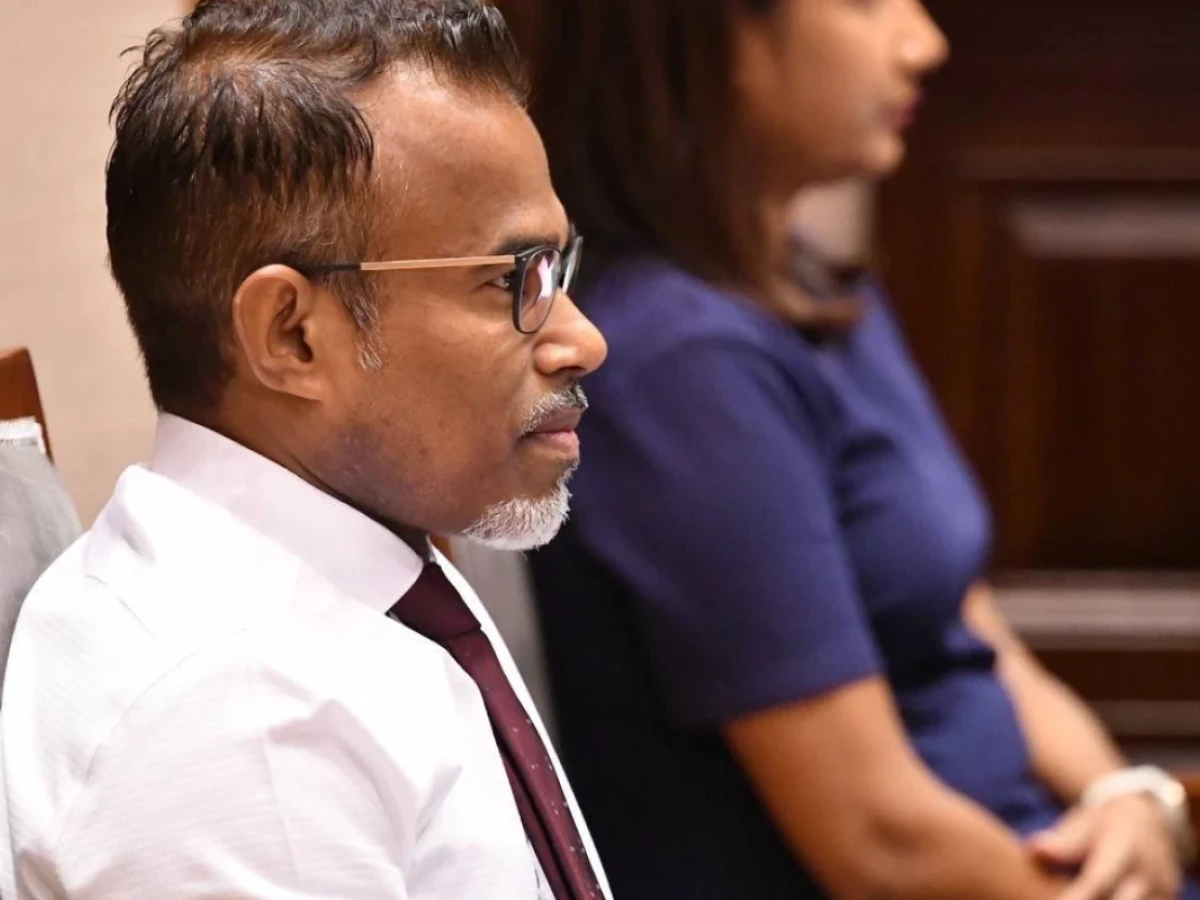
Hitting out at ex-AGs, Riffath says will never betray nation
According to Riffath, the southern EEZ case has been a long-standing problem since 1992.
Top Stories
By
Mohamed Muzayyin Nazim
Attorney General Ibrahim Riffath has said in the parliament on Monday that he has always worked in the interest of the people and will never betray the nation, slamming his predecessors for "negligence" in the delimitation of the territorial waters between the Maldives and Chagos in the south.
A no-confidence motion has been filed in parliament against Riffath claiming that he did not act in the best interest of the nation. Instead of appearing before parliament, Riffath had first replied in writing. However, he went to the parliament on Monday and read out a written statement after his written reply was blocked last week.
"Today is a historic day in my career. In the last 18 years, I have worked pro bono in cases involving national interest related to former presidents and honourable members of parliament," said Riffath, who worked as a defence lawyer for speaker Mohamed Nasheed when he faced terrorism charges during the previous government.
"Once again, today is special because we have won the case pertaining to the Exclusive Economic Zone (EEZ) of the south, which is in the national interest of the people, and have the opportunity to explain it to you honourable members."
According to Riffath, the southern EEZ case has been a long-standing problem since 1992. This, he said, has remained as an issue where no government has taken a decision on.
"When the case was decided, there was no gold medal awarded to me by the Mauritius government. I don't have a title [or] an honour bestowed on me," Riffath said, referring to the honour bestowed on Nasheed in 2010 by Mauritius during his presidency.
"I don't even have an escrow account I opened to load with dollars. I have never in my life touched undeserving money and I assure the people of the country that I have not betrayed you."
Former attorney generals have been vocal against Riffath who said on Monday that his predecessors had been "very neglectful" in this case and that it was "shameful".
"In the Southern EEZ case, the strategy assigned to the then attorney general by the [former] President Maumoon [Abdul Gayoom]'s government remains incomplete to date," he said, referring to his biggest critic, then Attorney General Dr Mohammad Munawwar.
"I'm not calling myself a prime expert in maritime law."
Riffath added:
-
When Mauritius referred the matter to ITLOS in 2019, it was discussed and consulted in the cabinet; with that a strategy was devised to take the case forward
-
Documents pertaining to the case such as claim forms, responses and charts explaining the details of the case have been shared with the parliament
-
Experts from the field represented the Maldives in the case
-
President Ibrahim Mohamed Solih's letter to the prime minister of Mauritius is not considered in the ITLOS judgment as evidence; the letter has nothing to do with the delimitation
While Riffath was replying, MPs from both the government and opposition raised 21 procedural objections.
In response, Riffath said he was present in parliament to respond to his no-confidence motion under article 101 of the constitution and not to answer questions from MPs under article 98 of the constitution.
"Honourable Attorney General, I will deal with maintaining the procedural soundness of the house. It is only the speaker who can conduct the proceedings of this parliament," speaker Nasheed said, in response to Riffath.
On the letters Riffath claimed was sent to parliament, Nasheed said:
-
In the letter accompanying the documents referring to the ITLOS issue, it has been requested that the documents be kept confidential till the matter is resolved
-
The letter stated that the request was made as it could affect the case
-
After the case was over, the parliament's foreign relations committee and MPs were handed over the documents
Riffath reiterated in parliament that whatever decision he took in the case was taken in accordance with the constitution and laws, so that the highest interest of the people could be protected. He also alleged that the no-confidence motion was moved for "political purposes".
"Honourable speaker, honourable members; enemies becoming allies and allies becoming enemies may be the nature of the political sphere. However, legal work is different," Riffath said.
When the no-confidence motion was moved with the signatures of 13 lawmakers, Riffath wondered under what legal basis they concluded that he had violated the constitution.
"What comes to the minds of the speaker and the 13 members of the parliament regarding what I have advocated in the EEZ case is not a ground in the constitution [to move a no-confidence motion]," he said, at which point the chair interrupted his speech as the first 10 minutes of his time ran out.
